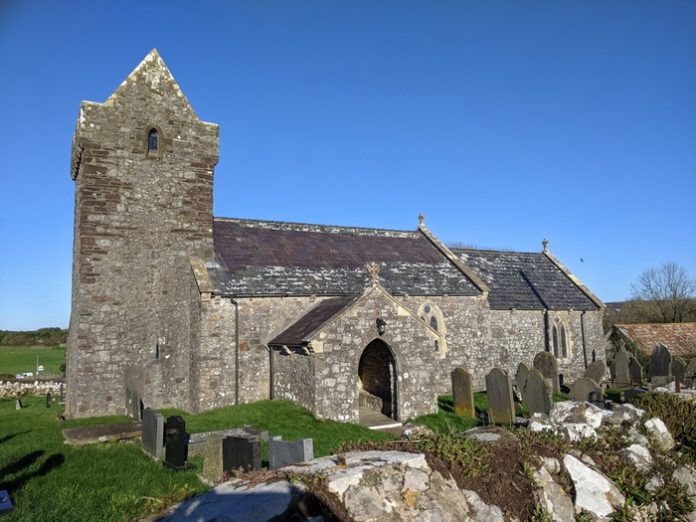
They include the creation of a new pilgrimage route across Gower, linking historic churches, chapels and other sacred Christian sites.
Another project seeks to increase biodiversity and improve the resilience of the natural environment at two sites in Craig Cefn Parc and Garnswllt.
The third project will involve a feasibility study to map local producers and shorten supply chains in rural Swansea. Its aim is to enable food businesses and consumers to connect and build sustainable food systems.
All have been assisted by new funding from the Swansea Council-managed Rural Development Programme (RDP).
The RDP is a seven-year European Agricultural Fund for Rural Development programme. Funded by the European Union and the Welsh Government’s Rural Development Programme 2014-2020, it’s due to end in 2023.
Andrew Stevens, the council’s cabinet member for business improvement and performance, said: “These projects bring new opportunity, hope and inspiration to our rural areas; they show a passion for these special parts of Swansea.
“They bring creativity and ambition to local communities and help maximise the potential these areas have now and for future generations.”
The new initiatives are driven by the United Benefice of South West Gower, Mawr Community Council and the council’s economic development team in conjunction with Swansea Food Partnership.
A spokesperson for the United Benefice of South West Gower said: “We’re delighted to receive a grant from the Welsh Government, via the Swansea Rural Development Partnership.
“It will enable the Gower Pilgrimage Way and Festival to become a reality in 2022.
“This will help residents and visitors to learn more about our historic churches, the lives and faith of the Celtic saints who founded them, and the faith of those using the churches today, whilst at the same time enjoying fine walks in this Area of Outstanding Natural Beauty.
“The initiative will promote sustainable tourism in Gower throughout the year, and should bring benefits to local businesses in our rural communities.”
Mawr Community Council chairperson Cllr Tom Roberts said: “Our members are delighted to have been awarded this funding for the Mawr Biodiversity Project.
“The funding will enable the newly appointed project coordinator to work on developing the green spaces and increasing the biodiversity in Craig Cefn Parc and Garnswllt for the benefit of the local and wider communities.
“The Biodiversity Project will expand the range of habitats and vegetation structures available at both sites and improve ecosystem stability.”
Sue Woodward, of the council’s economic development team said: “The feasibility study to map local produce and to shorten supply chains is an exciting piece of work.
“It will highlight opportunities for food producers and businesses and will provide residents and visitors with better access to locally produced food and sustainable supply routes.
“This will in turn, increase Swansea’s offer as a recognisable food destination.”
RDP chair Hamish Osborn said: “We’re pleased to announce further a selection of projects supported through Swansea Rural Development Partnership.
“The Gower Pilgrimage Way will be a true asset in preserving the heritage and traditions of spiritual journeys made across Gower. The project will promote the historical significance of the churches along the way and will create a sense of community for all through well-being and routes walked with others.
“The Mawr Biodiversity Project will take a sustainable approach to the management of its local habitats over two sites to protect and increase its native flora and fauna.
“The Mapping Local Produce and Shorten Supply Chains in Rural Swansea feasibility study will provide an understanding of the gaps in supply chains which will provide opportunities for producers to capitalise on and take steps towards creating sustainable food systems to reduce consumer food miles, and tackle climate change.”
The RDP’s outcomes include an increase in community self-reliance, development that is less damaging to the environment and more support for biodiversity.
Key aims include building community resilience, maximising the local economy, increasing wellbeing of rural communities.
Successes of earlier funding rounds have included projects that have created a vibrant, sustainable food production scheme and sustainable transport solutions which includes the Swansea Bay without a Car initiative.
Additional projects include one focusing on engagement with young people to provide a platform to explore environmental matters through the YMCA’s Youth Solutions Rural Swansea project.
Another – Growing Communities – brings together local residents and asylum seekers through the growing produce and sharing their experiences and heritage.


















